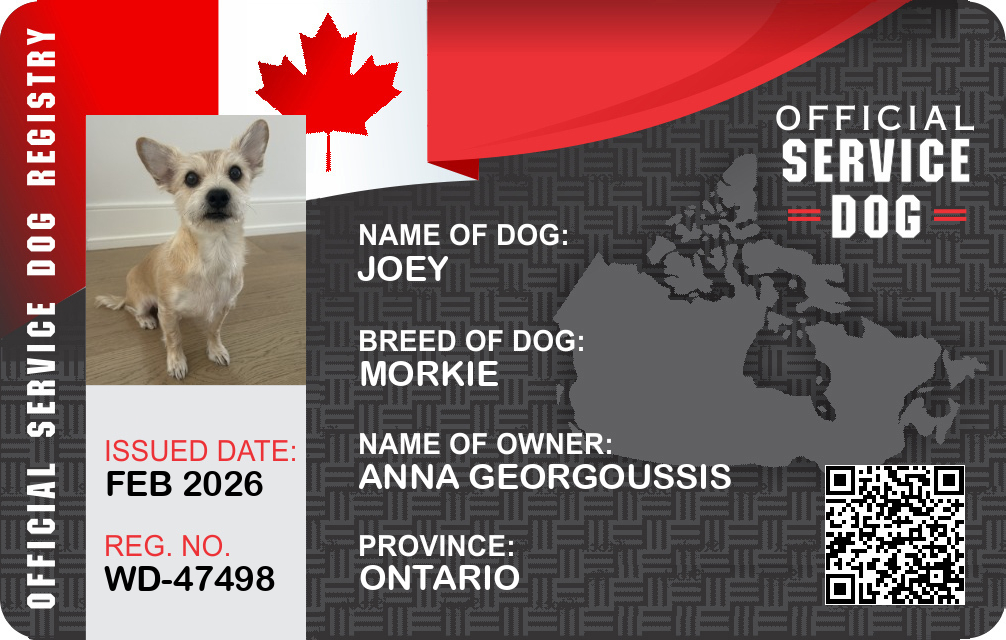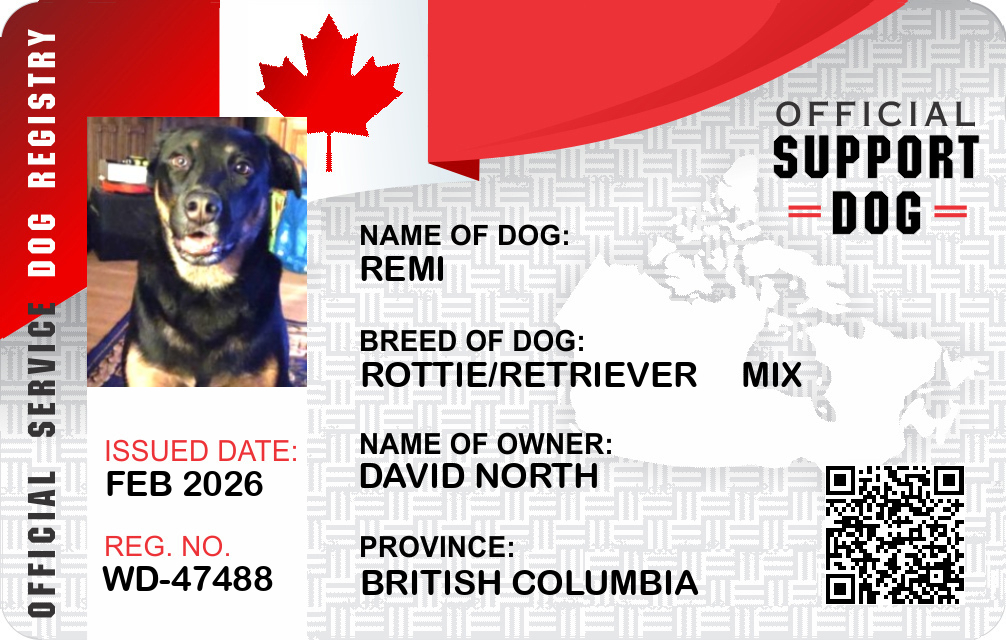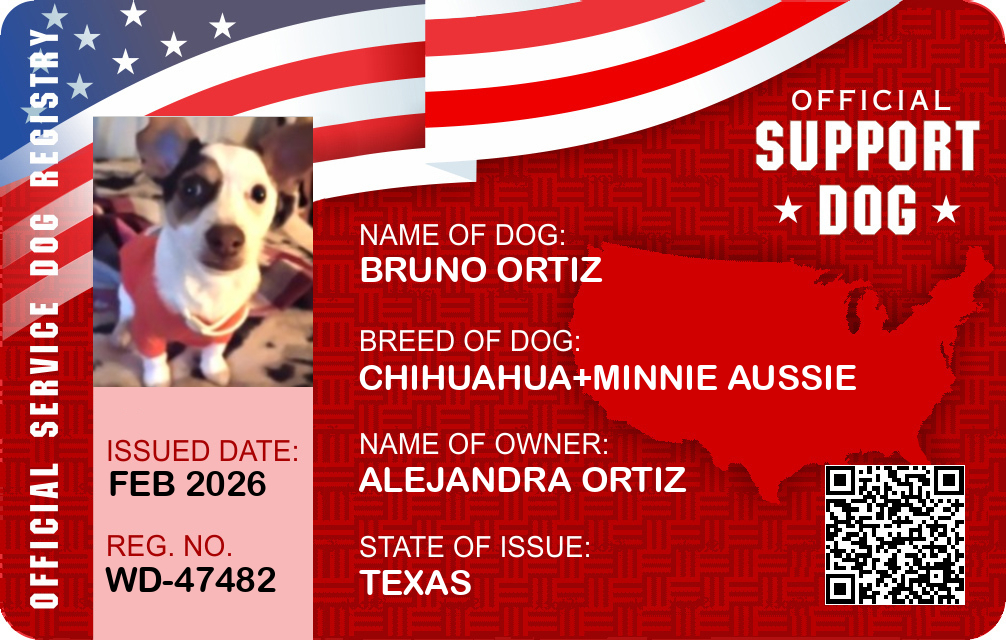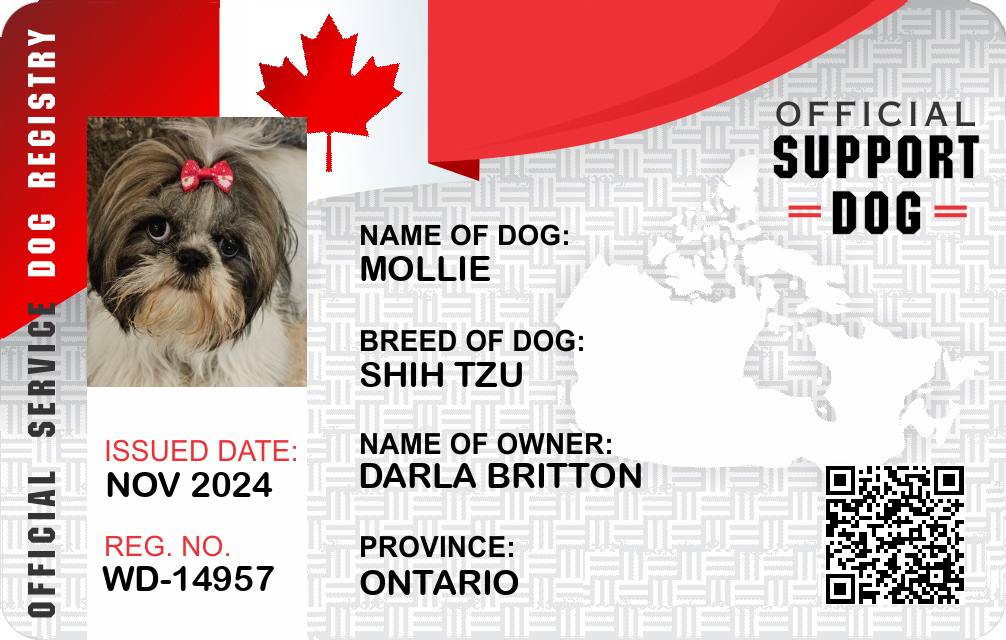New Mexico Service Dog Laws
Get Your Documents
Example State Cards

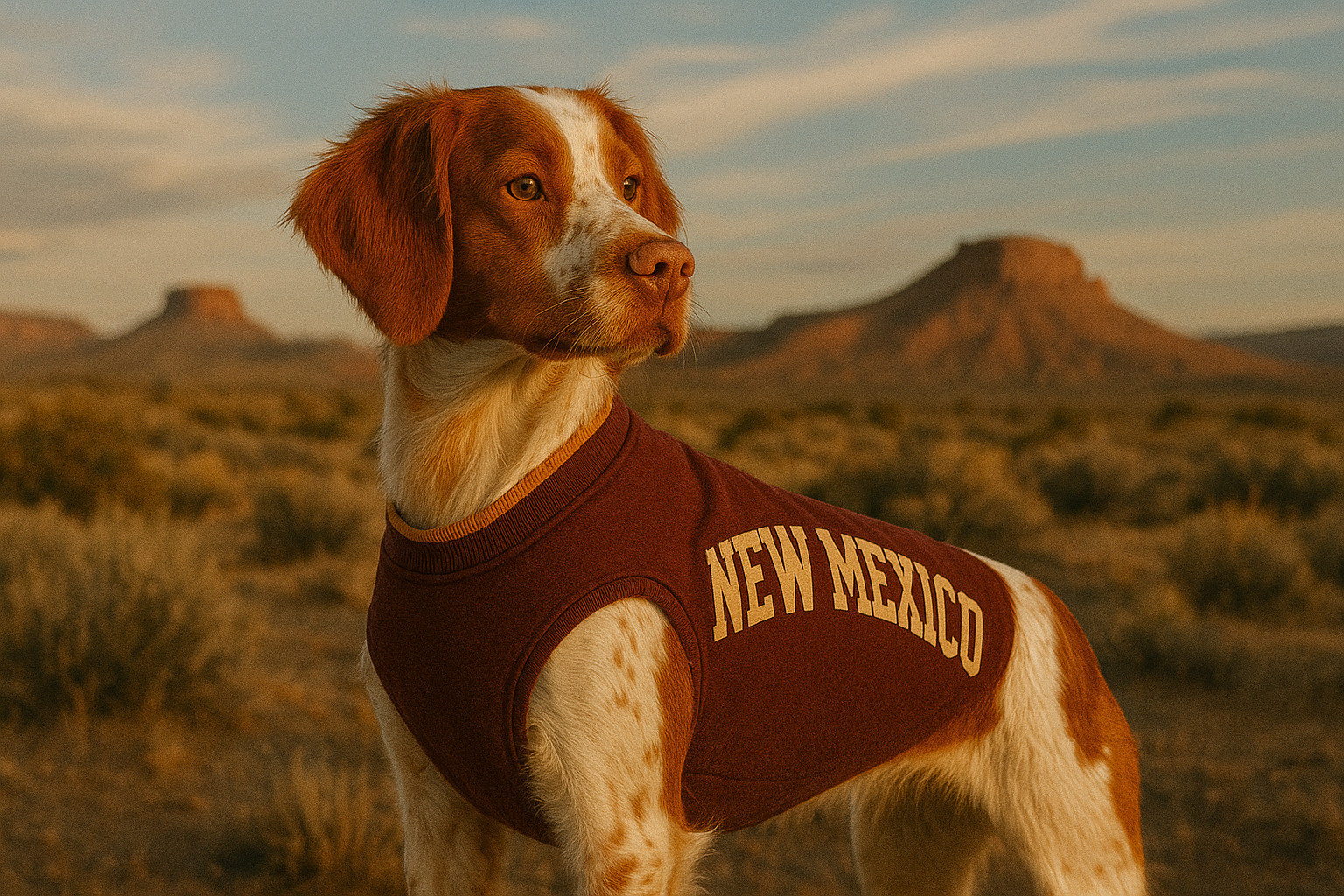
New Mexico Overview of Service Dog and Legal Definitions
Service dogs play a crucial role in enhancing the quality of life for individuals with disabilities, enabling them to navigate everyday tasks with greater independence and confidence. Understanding the nuances of service dog laws is essential for both handlers and the general public to ensure compliance and proper accommodation.
What is a Service Dog?
According to the Americans with Disabilities Act (ADA), a service dog is a dog that is individually trained to perform tasks for a person with a disability. These tasks are directly related to the person’s disability, such as guiding individuals who are blind, alerting those who are deaf, pulling wheelchairs, or fetching dropped items. The ADA definition distinguishes service dogs from other types of working animals based on the specific trained tasks that mitigate their handler’s disability.
How Service Dogs Differ from Other Types of Assistance Animals
Service dogs are distinct from other assistance animals such as emotional support animals (ESA) and therapy animals. While ESA provide comfort through companionship, they do not perform specific tasks that qualify them as service animals under the ADA. Therapy animals, often used in therapeutic settings like hospitals or care facilities, provide psychological or physiological therapy to multiple people other than the handler. Importantly, in New Mexico and under federal law, ESA and therapy animals do not have the same public access rights as service dogs.
Key Federal Laws Affecting Service Dogs (e.g., ADA, FHA, ACAA)
Several federal laws impact the rights and accommodations for service dog handlers:
- Americans with Disabilities Act (ADA): This law provides broad public access rights for service dogs, enabling them to accompany their handlers in most public places, including restaurants, hotels, and retail stores.
- Fair Housing Act (FHA): Ensures that individuals with disabilities can live with their service animals in housing where pets are typically not allowed.
- Air Carrier Access Act (ACAA): Governs the transportation of service animals by air, requiring airlines to allow service dogs to accompany their handlers in the cabin.
State-Specific Service Dog Laws in New Mexico
In addition to federal regulations, New Mexico has its own statutes concerning service animals. State laws in New Mexico align closely with federal definitions but emphasize specific enforcement measures and penalties for misrepresentation.
Housing Rights and Responsibilities
Under the Fair Housing Act (FHA), New Mexico residents with service dogs are entitled to housing accommodations without additional pet fees. Landlords must make reasonable accommodations for tenants with service dogs, even if the housing has a no-pet policy.
- Responsibilities of Landlords: Landlords can request verification that the dog is a service animal but cannot ask about the tenant’s disability or demand detailed medical documentation.
- Tenant Responsibilities: Tenants should notify their landlords of the service dog and provide appropriate documentation if requested.
Public Access and Accommodation
The ADA mandates that service dogs must be allowed to accompany their handlers in all areas where the public is permitted. In New Mexico, this includes:
- Restaurants and cafes
- Hotels and motels
- Hospitals and healthcare facilities
- Retail stores and malls
Service dog handlers do not have to provide documentation or proof of certification in public places; however, businesses may inquire whether the animal is required due to a disability and what tasks it is trained to perform.
Transportation and Travel Rules
Under New Mexico law and the Air Carrier Access Act (ACAA), service dogs must be permitted to accompany their handlers on public transportation, including buses and trains. For air travel, airlines may require prior notification and documentation, particularly for flights of extended duration or international travel.
Employment and Workplace Considerations
The ADA requires employers in New Mexico to provide reasonable accommodations for employees with disabilities, which includes allowing service dogs in the workplace. Employees should notify their employer of the need for a service dog and engage in an interactive process to determine appropriate accommodations.
- Employee Rights: Employees cannot be discriminated against for requiring a service dog.
- Employer Responsibilities: Employers must consider service dog accommodations, unless it would cause undue hardship.
Documentation, Requirements, and Processes in New Mexico
While federal and state laws provide broad rights for service dog handlers, understanding the documentation requirements and legal processes is essential for compliance and validation.
Service Dog Documentation and Who Can Issue It
Typically, service dogs do not require documentation or certification. However, for housing and air travel, a letter from a healthcare provider or mental health professional might be necessary, confirming the disability and the necessity of the service dog.
Landlord, Business, and Provider Verification Rules
Landlords and businesses are limited in what they can ask service dog handlers. They may verify:
- Whether the animal is required due to a disability
- What task the dog has been trained to perform
They cannot request proof of certification or ask invasive questions about the handler’s disability.
Rights, Limitations, and Legal Risks
Awareness of rights and limitations under New Mexico law can prevent conflicts and enhance mutual respect between handlers and the public.
Rights Service Dog Handlers Have in New Mexico
- Public Access: Access to all public spaces where the public is normally allowed.
- Housing: Accommodation in all housing scenarios, including those with no-pet policies.
- Transportation: Access to public and airline transportation with the service dog.
Limits on Service Dog Protections and Common Restrictions
Certain areas may restrict service dog access due to specific safety or health concerns, such as sterile hospital environments or areas where food preparation occurs. Moreover, if a service dog is out of control or poses a direct threat, its access may be restricted.
Penalties for Fraud or Misrepresentation
Misrepresenting a pet as a service dog is a serious offense in New Mexico, subject to fines or other legal penalties. Integrity in claiming service dog status is crucial to maintaining public trust and legal compliance.
Practical Guidance for Service Dog Handlers in New Mexico
Here are some steps to ensure compliance with service dog laws:
How to Qualify for a Service Dog Legitimately
- Consult with a Healthcare Professional: Obtain a diagnosis and recommendation for a service dog.
- Engage a Reputable Trainer: Work with certified trainers to ensure proper service dog training.
- Maintain Training Standards: Ensure continuous training and good behavior.
How to Talk to Landlords, Airlines, and Employers
- Be prepared with necessary documentation if required.
- Approach conversations with openness and understanding of mutual rights and responsibilities.
- Educate parties about legal rights associated with service dogs under federal and New Mexico laws.
Summary of Service Dog Laws in New Mexico
Understanding and adhering to service dog laws is crucial for maintaining rights and responsibilities. Here is a quick summary:
- Service dogs additionally must be trained to perform specific tasks related to a disability.
- Public places and transportation modes in New Mexico must accommodate service dogs.
- Service dog handlers cannot be charged extra fees or be discriminated against in housing or employment.
- Accurate representation of service dog status is essential—misrepresentation is penalized.
- Documentation is rarely required in public; however, some processes for housing and air travel might require a doctor’s note.
This guide additionally helps New Mexico residents ensure compliance with legal standards, fostering a supportive and understanding environment for service dog handlers and the community alike.
Get Your Documents
Example State Cards





